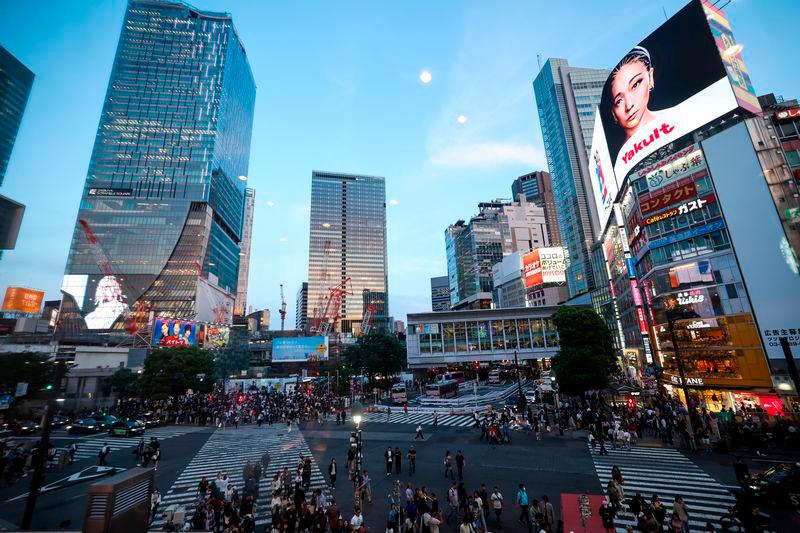AS Israel’s war in Gaza continues, Israel’s Benjamin Netanyahu has been hailed a conquering hero by US leaders during his recent visit and given the unprecedented opportunity to address a joint Congress for the fourth time.
He is the only world leader to have this honour.
On this occasion, he praised Joe Biden who he described as a “proud Irish American Zionist” – in Biden’s own words according to Netanyahu’s speech. He also condemned opponents of the war as “choosing to stand with evil” and becoming “Iran’s useful idiots”, and pledged to achieve “total victory”.
How history will judge Netanyahu and Israel in this war and its aftermath will be very different from how the United States and its Western allies and supporters in Asia have responded to date.
UN Independent International Commission of Inquiry on the Occupied Palestinian Territory Report
On June 12, the office of the UN commission on human rights issued the UN’s first in-depth investigation of the events following Hamas’s military action on Oct 7, 2023.
The report, based on interviews with victims and witnesses, thousands of open-source items verified through forensic analysis, hundreds of submissions, satellite imagery and forensic medical reports found Israel and Netanyahu “responsible for the war crimes of starvation as a method of warfare, murder or wilful killing, intentionally directing attacks against civilians and civilian objects, forcible transfer, sexual violence, torture and inhuman or cruel treatment, arbitrary detention and outrages upon personal dignity”.
The Commission also found “crimes against humanity of extermination, gender persecution targeting Palestinian men and boys, murder, forcible transfer, and torture and inhuman and cruel treatment were also committed”.
Not only did Israel systematically try to obstruct the Commission’s investigations, but the Commission also found that “statements made by Israeli officials – including those reflecting the policy of inflicting widespread destruction and killing large numbers of civilians – amounted to incitement and may constitute other serious international crimes.
Direct and public incitement to genocide is a crime under international law whenever perpetrated, even by persons with no direct authority for the conduct of the hostilities. Incitement to discrimination, hostility or violence is a serious violation of international human rights law and may amount to an international crime.”
Navi Pillay, South African jurist and Chair of the Commission noted that “it is imperative that all those who have committed crimes be held accountable” as the only way to stop the recurring cycles of violence, including aggression and retribution by both sides, is to ensure strict adherence to international law”.
Japan’s policy on war crimes: Past and Present
Among Asian countries, Malaysia and Prime Minister Datuk Seri Anwar Ibrahim have played the leading role in the condemnation of Israel and its resort to a genocidal strategy that has broken through the moral and humanistic standards of civilised nations.
The Malaysian stand has been steadfastly adhered to despite the strong signals of disapproval sent out by the West through its control of Western media.
Malaysia’s unambiguous position is in stark contrast to the failure of Japan to unequivocally condemn Israel and Netanyahu despite its chairman position in G7 at the beginning of the reign of terror imposed on the Palestinians.
The G7 is acknowledged to be the most powerful intergovernmental political and economic forum with Japan as its sole Asian member sitting with Canada, France, Germany, Italy, the UK and the US, and the European Union as a “non-enumerated member”.
It has been widely touted in Western media as wielding significant international influence through its major initiatives in economics and geopolitics.
The meetings of G7 are invariably trumpeted in Western media as the strong determination of the West with its non-West allies to maintain the international order based on the rule of law.
See this excerpt from the information disseminated to international media on the eve of the G7 Hiroshima Summit: “Upholding the international order based on the rule of law: Demonstrating G7’s strong determination to uphold the international order based on the rule of law, firmly rejecting any unilateral attempt to change the status quo by force or the threat to use nuclear weapons, as Russia has done, or the use of nuclear.”
There has been plenty of opportunity for Japan to explicitly condemn Israel and publicly call out against Israel’s war crimes.
On Nov 3, 2023, Japan’s Foreign Minister Yoko Kamikawa met with her Israeli counterpart and condemned the “brutal killing and kidnapping by Hamas and others”, while expressing “Japan’s solidarity with the people of Israel”.
A few hours later, Kamikawa met with her Palestinian counterpart, expressing her “sincerest condolences” and “sympathy” to victims of the hostilities in the Gaza Strip, and said Japan is prepared to increase its humanitarian aid.
This contrast in messaging as well as policy action – condemnation of Hamas and expression of support for Israel on the one hand and failure to denounce Israel and hold it responsible for its immeasurably more horrific war crimes amounting to genocide, ethnic cleansing and the most serious violation of human rights – is not surprising.
Japan’s refusal to act to prevent further Israeli atrocities in Palestine points to its political and economic alignment and allegiance to the US and the West which has seen critics call it out as a client state of the US.
In this unequal and dependent status that emerged after its defeat in the Second World War, Japan has been treated by the US as a lackey and as an ATM – a role it regularly and reflexively plays out on the global stage rather than stand up to assert its independent and neutral alignment.
The failure of Japan to support the UN’s efforts at ensuring transparency and accountability of all parties in war crimes and other crimes against humanity is, in fact, hardly surprising given its refusal to fully acknowledge the war crimes and crimes against humanity that the Japanese army engaged in during the Second World War.
Japan’s war crimes are considered by many historians and authorities to rank even worse in barbarity and number of victims than that inflicted by Hitler’s Nazi government against Jews.
These crimes ranged from sexual slavery and massacres to biological and chemical warfare, human experimentation, starvation, and forced labour, all committed or condoned by the Japanese military and government.
In particular, the Rape of Nanjing or the Nanjing Massacre stands out in modern history as one of the worst acts of war crimes collectively committed by an army.
It is a chapter of history that the Japanese government has not only refused to fully acknowledge or apologise for.
Instead, the world has seen continual denial and attempts at erasure of its past as evidenced by the repeated attempts to whitewash its military actions in Asia and the Pacific; and the actions of Japan’s political leaders in continuing to pay respects at the Yasukuni Shrine which honours all Japanese war dead, including convicted Class A war criminals.
Netanyahu and other Israeli leaders must be drawing comfort from Japan’s example and this particular page of recent history dealing with war crimes and war criminals when the war in Gaza ends.
Lim Teck Ghee’s Another Take is aimed at demystifying social orthodoxy.
Comments: letters@thesundaily.com










